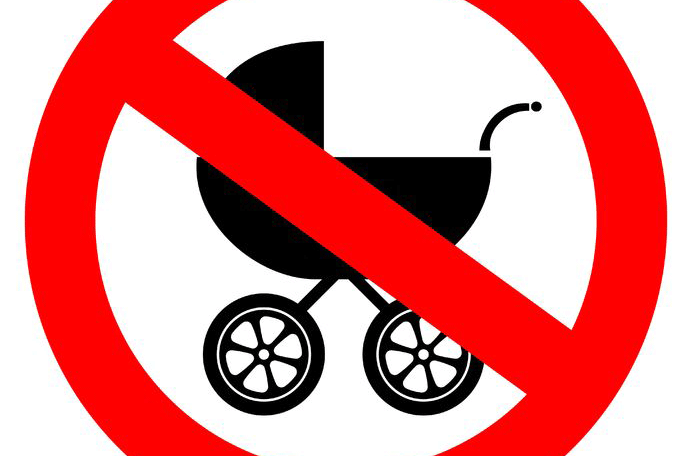Freelance copywriting – Why it’s tougher if you’re married
March 19, 2015 • Glenn Murray

Freelance copywriting is tough for anyone. If you’re in a relationship, it’s even tougher.
Not just because of the obvious stuff like taking a pay cut (mine dropped $3,750 per month when I left my salaried role as a technical writer). And not just because you have less time together.
There are quite a few, much more subtle reasons why freelance copywriting’s tough when you’re in a relationship. Here are the ones that’ve had the biggest impact on me over the last 13 years…
1) Your partner might think you’re an egomaniac
There’s no point becoming a freelance copywriter if you merely think you can do it. You have to know you can. Absolutely, positively, intrinsically, and with such assurance that you take it for granted. That you’ve never even think to question it.
You have to be so sure, in fact, that your ability isn’t even a factor in deciding whether to become a freelance copywriter. It’s a factor only in deciding how to become one.
But try explaining any of that to a non-writer without sounding like an egomaniac! The best I’ve been able to do is this…
Thinking you can do it is all fine and dandy… until you’re given a reason to think maybe you can’t. Because those two thoughts kinda cancel each other out (i.e. “I think I can BUT I also think I can’t.”) And then where are you?
When you know you can do it, and you encounter a speed hump, your first response won’t be “Why can’t I do this?” or “Should I give it up?”. It’ll be, “What am doing wrong?”, “What should I do differently?” or “How can I overcome this problem?”.
More importantly, knowing you can do it makes you more confident. You can let the words flow without second-guessing yourself at every turn. (I wrote about this a few years back: Dead scribe a-thinkin’: How Missy Elliot’s hips cured my writer’s block.)
2) You have to ignore your partner’s opinion
This may sound strange, but you have to pretty much ignore your partner’s opinion of your copywriting skills. In fact, you’re better off not asking for their opinion at all, and avoiding all situations that might result in them offering it.
This applies even if they actually know how to write. Perhaps especially if they know how to write.
For example, my wife doesn’t like a lot of my copywriting. And she likes other copywriting I hate. If I took that to heart, I’d have given up years ago.
Instead, I just remember that, although she’s everything to me, she’s just one person. And no matter how much I rely on her common sense and good judgement in all other matters, her opinion is worth only one vote when it comes to my copy.
Indeed, for most of the copy I write, she’s not even in the target audience, so in reality her opinion isn’t worth even one vote! (Sorry babe…)
Oh, and there’s also the very real possibility that she’s wrong. (And no, not because I’m always right! 😉 You see, because she’s close to me, when she reads my copy, she naturally imagines it’s me talking. But it’s not really me talking at all, it’s me pretending to be my client. So I don’t ‘sound’ like me. This is quite jarring for her – even a little embarrassing. Kinda like hearing a recording of your own voice. It’s not at all what you think you sound like. And no matter how hard she tries, this discomfort can potentially obscure every single quality in my copywriting.
3) You’re not Don Draper

Wikipedia says most copywriters are employees within ad agencies, PR firms, broadcasters, newspapers, magazines, publishers and so on. When you say “copywriter”, this is what most people think.
Worse, most people have also seen Mad Men. And if you’re a copywriter who doesn’t look and function like Don Draper, you’re something of a disappointment to them. (Even if they don’t actually like him.)
This is amplified by the fact that you’ll probably work ‘ugly’. In your daggiest clothes and bed-hair. In fact, if you’re anything like me, you’ll only ever doll yourself up to go out. So your partner may start to see the ‘ugly’ you as the real you.
That’s fine if your partner loves the ‘ugly’ you too. But it’s still something to be aware of , even if only so she doesn’t start thinking you make no effort for her.
Of course, the flip-side is that you may start to think the ‘ugly’ you is the real you. And if you see yourself as ugly, it’s hard to imagine how your partner could not. This can have subtle but significant repercussions. For example, if (in your mind) your partner doesn’t find you attractive, but when you go out, other people do, what impact does that have on your relationship?
4) You’ll probably gain weight
When I left my salaried job, I was a fit, lean, muscly 90kg. Now I’m a soft 101kg. And 5 weeks ago, I was 107.6kg.
Granted, I’m also 13 years older, but the weight gain happened almost immediately. I have nowhere near as much time to exercise, and virtually no opportunity to play team sports (which to me seem more like fun than exercise).
As a result, I’m constantly battling my weight.
Incidentally, if you find this happening to you, I recommend the MyFitnessPal calorie counter app. I’ve used it to lose weight twice, and both times, I’ve lost a lot, very easily. (Indeed the first time, I got down to 86kg, but my wife said I was too skinny, so I stopped. Then, unfortunately, I slipped back into my old habits. Remind me to do things differently this time when I reach my target weight…) Just make sure you’re honest with the calories you enter, and you take the time to calculate your calorie intake accurately.
5) You’ll never be able to budget accurately
When you’re a freelance copywriter, it’s feast or famine. You might earn nothing for an entire month, then get a cheque for $30,000 for a big job you’ve just finished. Then you have to figure out how much tax to set aside. So your cash-flow is always up and down.
Sure you can smooth those ups and downs by saving up a bit of a buffer, to tide you over during the dry months. But when you’re starting out, saving is all but impossible unless your partner is earning too.
You can also charge a portion of your fee up-front (I charge 50%). But if it’s a big job, that doesn’t always do the trick, because it’ll be a while before you get the balance of payment.
You’ll need to think long, hard and creatively about how to track your average income and average spending. (I use Saasu and an accountant for the former and Toshl for the latter. Give them a try yourself…)
6) You’ll find it almost impossible to plan for holidays
When you’re a freelance copywriter, you can up and go on holidays any time you like, right? Wrong.
You may not have to work around approved leave periods, but you still have to work around clients. And they usually don’t give you much notice at all. You might have had a holiday planned for months, and the day before you leave, your best client calls to say she needs 30 pages of copy by the end of the week. Or your dream client. Either way, you’re in a sticky situation. You either stay and incur the wrath of your partner, or go and disappoint (possibly lose) the client and forego some much needed income.
(Of course, all of the above assumes you can afford holidays, which, given the aforementioned budgeting difficulties, isn’t always the case…)
7) You’ll fail. Probably again and again
I’ve lost count of the number of times I’ve failed during my career. Failed to win jobs, failed to quote accurately, failed to say the right thing to clients, failed to work hard enough, failed to forget work when I got home, failed to earn enough…
If you know me, you know I hate failing. HATE! But I know every failure makes me a better freelance copywriter, and thus a better provider. So I’m philosophical enough to know that failure is a necessary part of success.
It’s hard for my wife to be that philosophical. I mean, yes, she understands the theory, but when it’s not you doing the failing, it can be hard to keep it all in perspective. Your partner might remember the failures more vividly than the successes. He might fixate on them because he wants to help you fix them. He might be a catastrophizer, constantly fearing the worst, so every hiccup might seem a disaster.
Or perhaps he’s just following your lead. Maybe you focus more on your failures than your successes, and he simply follows suit.
Either way, it’s difficult not to internalise the failures (too much). If you stop seeing failure as something you occasionally do, and start seeing it as what you are, then everything’s going to end in tears.
8) Your partner becomes your business partner
If you choose to become a freelance copywriter, your partner will absolutely be required to make sacrifices. As a couple, you’ll have less time together, fewer holidays and, for a long while, less money. You’ll probably also have to invest shared money in setting up your business, and your partner may even end up supporting you financially.
This means they’re necessarily your business partner, not just your life partner. And if the business partnership is to succeed, they really need to ‘buy in’ to the business.
Being a supportive onlooker just isn’t enough. They may be supportive of you, personally, but you need them to take a real interest in the inner workings of the business, so they understand its financial ups and downs, as well as your emotional ups and downs. If they don’t, they won’t see the benefits of long-term marketing investments, and they won’t understand why some clients just cannot be denied. These blind spots — and many, many more — can quickly lead your partner to resent the business, which immediately turns to friction.
On the flip-side, being a mere onlooker isn’t enough for your partner either. The blind spots mentioned above can make them feel excluded, and your obsession with business will make them feel overlooked and neglected. If you’re both striving toward the same goals, this won’t be such a problem.
They also need to be fully aware of the sacrifice they’re about to make. And for how long they’ll have to make it. How many hours you’re going to have to put in — how many late nights, early mornings and weekends. How they’ll have to do more work around the house (not less, as they may be expecting). How having you at home full-time will test their patience, and won’t necessarily mean more quality time together. (You may be home all day, but you’re not ‘present’, and that distinction can be very difficult to deal with.) How you’ll no longer leave work at work.
Indeed, once you’re under way, your partner will probably find it more difficult than you (especially if you have a family). Like you, they’ll be working harder than ever, but they won’t share the excitement and satisfaction of the business, throughout the day, so it’ll become a drudge much more quickly.
Yet still, they’ll have to accept all of this as a necessary investment.
You, on the other hand, need to recognize your partner’s real role in the business. They’re enabling you, making it possible for you to focus on your freelancing. All the work they do, every day, including weekends, is work you don’t have to do. They’re giving you more time to spend in the office. You’re outsourcing those tasks, so you can get on with the things you’re really good at.
This understanding of the business partnership is critical to a harmonious personal relationship because:
- You understand that both of you are generating income for the business. If your partner works a job, they’re generating income for the business directly. If they don’t, they’re generating income indirectly (by freeing up your time).
- You recognise and respect the important role your partner is playing in the success of your business.
- You understand that any help you provide your partner will ultimately result in more income for the business, you’ll do everything you can when you’re out of the office, to ease their workload.
- They appreciate your understanding and your contribution outside the office, and they feel more inclined to continue investing their time and effort into the business. And so on…
- Neither of you will think of your business as your ‘side-thing’, your pocket money or your hobby. You’ll both take it very seriously, because you’ve invested a lot in it.
- You’re a team, and everyone likes being part of a team!
Oh, and one final thing. It’s possible (perhaps preferable, given point 2 above), that your partner will often be a ‘silent’ business partner. But they still need to be a business partner, not just an onlooker.
9) You’ll have to delay starting a family
Starting a freelance copywriting business is hard. Keeping it going, even harder. Doing both as a new parent, near impossible.
You might be able to persevere with an unprofitable business for quite a few months without kids, but with kids, it’s an entirely different story. They’re expensive little critters! Plus, someone has to look after them. If that’s you, you won’t have much time for business. If it’s your partner, they won’t be able to support you, financially, through the first few months. If it’s a childcare provider, you have to pay for it — and that’ll probably cost more than your business turns over, for a while.
So unless you have a lot of savings or a lot of financial help, you’ll probably have to put a hold on your family plans.
Sadly, if your partner really wants kids now, and your freelancing aspirations are getting in the way, things are gonna get ugly.
There’s not really much I can offer in the way of advice here, except to reiterate: don’t do it if you can’t afford it. If neither of you wants to wait, your only real choice is to go get a job.
10) You’ll probably have to work with kids in the house

Two words: sleep deprivation.
Copywriting requires creativity, and creativity generally requires sleep. Unfortunately, kids don’t like their parents to sleep. As a father of three (10yrs, 8yrs, 5yrs), I’ve learned this the hard way. I’ve come in to work tired almost every day for the last 13 years. And I blame the kids for almost all of those days. 😉
Indeed, until our first son was 6, I could count on one hand the number of full night’s sleep we’d had. Seriously. Fortunately, we had him 2 years after I started freelancing, and by then my business was doing pretty well. I suspect if we’d had him earlier I would have given up.
If I’d been a breast-feeding mum? Forget it!
It’s not just the sleep deprivation, though. There are many other practical considerations. Like looking after the kids. Fortunately my wife is a stay-at-home-mum, so she did most of the daytime caring. Had she gone back to work, I’d have been screwed. There’s no way I could have looked after the kids and run a freelance business at the same time. Both would have suffered.
Your office location is also an important consideration. When you work at home, one of the biggest problems you face is waking the rest of the household – particularly the kids. Whether you’re starting early, working late or your kids (and their mum) are still having day-sleeps, just about everything you do has the potential to wake everyone – and start a shit-storm! The phone, your music, your movement, opening and closing drawers and filing cabinets, email and Twitter notifications… Even your typing (especially if you’re heavy-handed like me).
So if possible:
- Locate your office in a room that’s as far from the bedrooms as possible. And if you have to use a bedroom as your office, use one that’s as far as possible from the lightest sleepers (particularly day-time sleepers, like young kids, shift-workers and breast-feeding mums).
- Locate your office in a room that allows you to get to the office without waking people.
- Locate your office in a room that allows you to get to the toilet and kitchen without passing any bedrooms. (This was a killer for me. To get to either of our toilets, I have to walk past at least 2 kids’ bedrooms. Plus my wife would often sleep on the lounge, so I’d wake her too. It was such a problem that I usually ended up weeing outside! And even that was a challenge, because I work in the garage, and the garage door is incredibly noisy.)
- Don’t put your desk against a wall that adjoins a bedroom. (You’ll constantly kick the wall accidentally, and every noise you make with the desk will carry through the wall (opening and shutting drawers, knocking it as you walk by, putting your coffee cup down, etc.)
Then, of course, there’s the flip-side: kids are bloody noisy! And they always choose the most inopportune times to bellow and squeal, or to come in and tell you they have poo on their finger. Like when you’re on the phone to a client or you’re recording a video. (If you watch some of my videos or listen to some interviews, I guarantee you’ll occasionally hear the kids screaming in the background.)
Indeed, even when they’re not making a lot of noise, they’re distracting. When I knew my wife was sleep-deprived and really struggling, I found it so difficult to continue working. Everything in me wanted to go and help, but I couldn’t (always).
11) You become a different person
For the last 13 years, I’ve felt like that kid from the Far Side comic who asks to be excused from class ‘cos his brain’s full.
I’m always worried about money and unfinished work. Even Especially when I’m on holidays. Sometimes it gets to the point where I struggle to talk about, or focus on, anything else. And I’m often irritable and snappy.
I wasn’t like that before I started freelancing. And that’s when I met Sharon – when I was a normal human person. So she’s had to cope with that change. Sure, we all change, but I think this particular transition is a pretty likely outcome for anyone who becomes a freelance copywriter.
So beware.











Anna wrote on March 19th, 2015
It sure has it's challenges, but I think I'll be OK: 1) Your partner might think you’re an egomaniac And they would be right! 2) You have to ignore your partner’s opinion Yep.. easy :) 3) You’re not Don Draper I'm an arrogant egomaniac. Boy-bits aside, I think I qualify hands-down. 4) You’ll probably gain weight That's what kaftans are for ;-) 5) You’ll never be able to budget accurately I lived on Austudy and fresh air in my 20s. Not a problem. 6) You’ll find it almost impossible to plan for holidays I give clients LOADS of advance notice. Which is why I'm taking leave next week :D 7) You’ll fail. Probably again and again The only failure in life is to not learn from your mistakes. The rest is an apprenticeship. 8) Your partner becomes your business partner Great... he can do the filing! 9) You’ll have to delay starting a family Valid reason #397 10) You’ll probably have to work with kids in the house See #9 11) You become a different person Some might argue that could actually work in my favour... ;-)
Reply
Glenn Murray wrote on March 19th, 2015
LOL. Good answers! :-)
Reply
Sue wrote on March 19th, 2015
When you work from home, some friends and neighbours think you're on constant holiday and that they can interrupt and hope for a cup of tea and a chat at any time. They need to learn quickly that that's not the case. Door to door salesmen were a real problem till I put up one of those "Do not knock" stickers. Having someone bashing on the door to get your attention is a real negative when working on something requiring your full attention.
Reply
Brook McCarthy wrote on March 19th, 2015
You really sell copy writing, Glenn. I especially like the detail you go into talking about accidentally kicking the walls and getting to the bathroom (and peeing in the garden). I honestly haven't found it nearly as hard, and I had two kids in the process. Two things that make it work are that my partner is now self-employed too and working from home (he saw how much fun I was having, or rather, he got laid off), and he does a good amount of housework too, including shopping for food and cooking. But I agree that your default position is distracted, irritated and worrying.
Reply
Glenn Murray wrote on March 19th, 2015
Yes! My in-laws still do this a bit. They try not to, but sometimes they just can't help themselves.
Reply
Glenn Murray wrote on March 19th, 2015
You suck! ;-)
Reply